7 Essential Spices Every Beginner Home Cook Actually Needs
Stop wasting money on spices you'll never use. This practical guide shows exactly which 7 spices beginners need to make delicious meals with minimal effort. Based on testing hundreds of recipes, these versatile spices work across multiple cuisines and transform basic ingredients into restaurant-quality dishes. You'll learn exactly how to use them properly - no confusing science jargon required.
The Real Essential Seven: What You'll Actually Use
- Salt: The flavor enhancer that makes everything taste better
- Black Pepper: Adds warmth and complexity to any dish
- Paprika: Provides rich color and mild flavor (sweet, smoked, or hot)
- Cumin: Earthy spice perfect for tacos, chili, and roasted vegetables
- Garam Masala: Blend that instantly adds depth to soups and stews
- Cinnamon: Works in both sweet and savory dishes
- Red Pepper Flakes: Simple way to add customizable heat
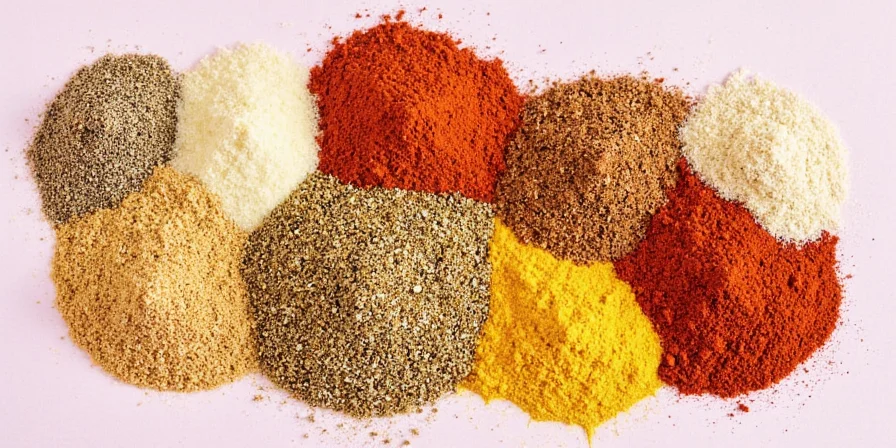
How to Use Each Spice Properly
1. Salt – Your Most Important Tool
Salt isn't just for making food salty - it enhances all flavors. Use these simple guidelines:
| Type | When to Use | What It's Best For |
|---|---|---|
| Kosher Salt | Seasoning during cooking | All-purpose cooking, especially proteins |
| Table Salt | Baking and precise measurements | Soups, sauces, baked goods |
| Sea Salt Flakes | Finishing dishes | Steak, vegetables, chocolate desserts |
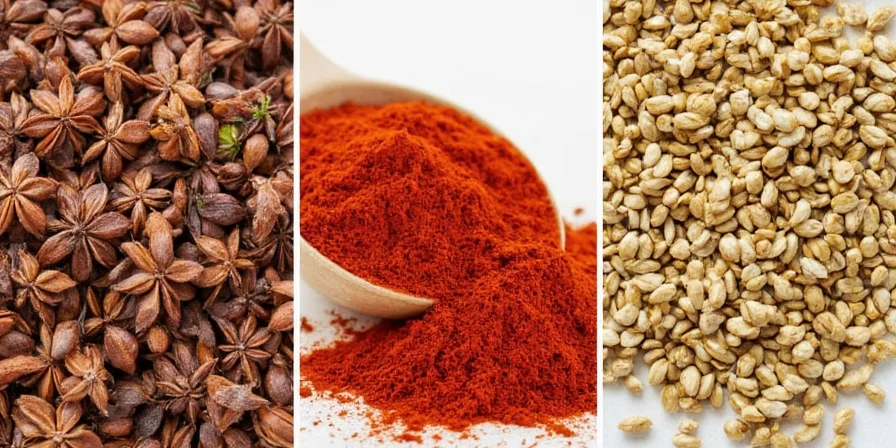
2. Black Pepper – More Than Just Heat
Freshly ground pepper makes a huge difference. Here's what beginners need to know:
- Always grind fresh: Pre-ground pepper loses flavor quickly
- When to add: Add toward the end of cooking for best flavor
- Perfect pairings: Eggs, roasted vegetables, pasta, steak, soups
3. Paprika – Color and Flavor Made Simple
Don't get overwhelmed - just buy one type to start:
| Type | Flavor Profile | Best Beginner Uses |
|---|---|---|
| Sweet Paprika | Mild, slightly sweet | Roasted potatoes, deviled eggs, meat rubs |
| Smoked Paprika | Rich, smoky flavor | Chili, BBQ sauces, roasted vegetables |
| Hot Paprika | Spicy kick | Spicy dishes, tomato sauces, bean dishes |
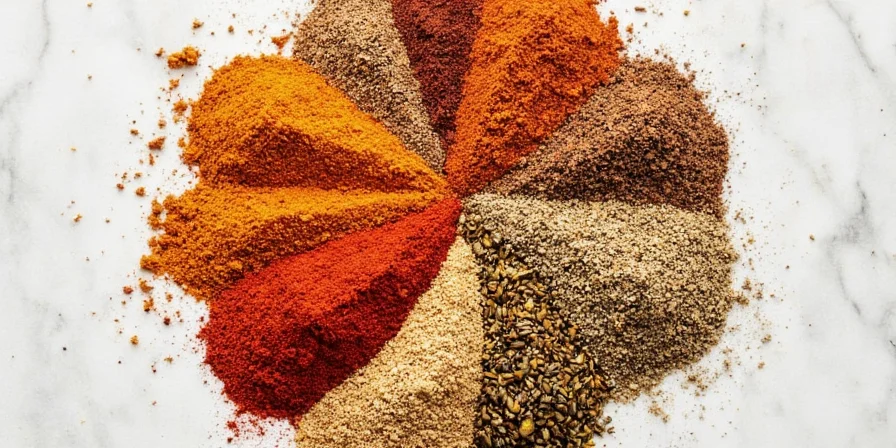
4. Cumin – The Taco Night Essential
Cumin gives that familiar taco/burrito flavor but works in many dishes:
- How to use: Add early in cooking for deeper flavor
- Perfect for: Chili, tacos, roasted vegetables, hummus, curry
- Pro tip: Toast in dry pan 30 seconds before using for richer flavor
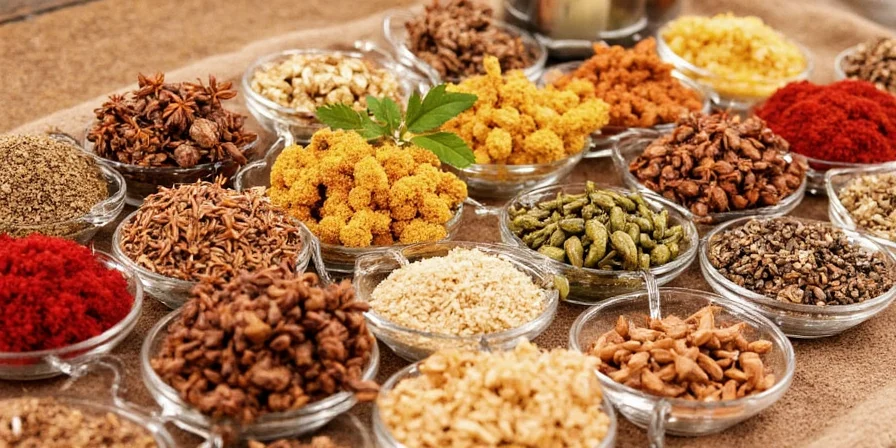
5. Garam Masala – Your Secret Weapon
This Indian spice blend adds instant depth to many dishes:
- When to add: At the end of cooking for best flavor
- Beginner uses: Stir into soups, sprinkle on roasted vegetables, mix with yogurt for sauces
- No Indian recipes needed: Works great in tomato sauce, chili, and even meatloaf
6. Cinnamon – Not Just for Desserts
Savory dishes benefit from cinnamon too:
- Sweet uses: Oatmeal, coffee, baked goods, fruit dishes
- Savory uses: Add to chili, Moroccan tagines, braised meats, roasted carrots
- Beginner tip: Start with 1/4 teaspoon in savory dishes to avoid overpowering
7. Red Pepper Flakes – Customizable Heat
Control the spice level perfectly:
- How to use: Start with small amounts and add more as needed
- Perfect for: Pasta sauces, pizza, eggs, roasted vegetables
- Storage tip: Keep in airtight container away from heat and light
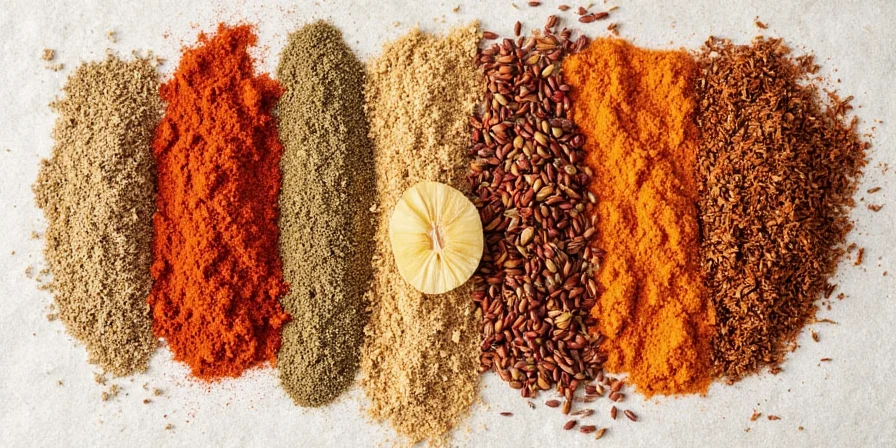
Practical Storage Guide for Maximum Freshness
- Buy whole when possible: Whole spices last 2-3 years, ground spices 1-1.5 years
- Proper containers: Keep in airtight containers away from stove and sunlight
- Freshness test: Rub between fingers - if little aroma, it's time to replace
- Best value: Buy small quantities from bulk bins to save money
How to Build Your Spice Collection Step-by-Step
| First Month (Core Set) | Next 3 Months (Smart Additions) |
|---|---|
| Salt, Black Pepper, Paprika | Garlic Powder, Onion Powder, Oregano |
| Cumin, Red Pepper Flakes | Thyme, Rosemary, Curry Powder |
Beginner-Friendly Spice Combinations
Instead of memorizing recipes, use these simple combinations for instant flavor:
- Taco Night: Cumin + Paprika + Garlic Powder + Onion Powder
- Italian Pasta: Oregano + Basil + Red Pepper Flakes + Garlic Powder
- Roasted Vegetables: Paprika + Garlic Powder + Onion Powder + Thyme
- Soups/Stews: Cumin + Garam Masala + Paprika + Black Pepper
Beginner Spice Questions Answered
Which 3 spices should I buy first on a tight budget?
Start with salt, black pepper, and paprika. These three work in almost every dish you'll make. Salt enhances all flavors, pepper adds depth, and paprika (especially sweet or smoked) gives color and mild flavor to countless dishes from roasted vegetables to soups to meat rubs.
How do I know when spices have gone bad?
Ground spices lose potency after 1-1.5 years, whole spices after 2-3 years. The easiest test: rub a small amount between your fingers. If there's little aroma, it's time to replace. Spices don't spoil but lose flavor. You'll notice dishes don't taste as vibrant as before.
Can I substitute dried herbs for fresh in recipes?
Yes, but use one-third the amount of dried herbs compared to fresh. For example, if a recipe calls for 1 tablespoon fresh basil, use 1 teaspoon dried basil instead. Dried herbs are more concentrated. Add dried herbs early in cooking, while fresh herbs should be added at the end.
Why do some recipes call for toasting spices?
Toasting briefly in a dry pan releases essential oils and intensifies flavor. For beginners: heat spices in a skillet over medium heat for 30-60 seconds until fragrant, stirring constantly. This works especially well for cumin, coriander, and mustard seeds. Let cool before using in your recipe.
Simple Next Steps for Success
Building your spice collection doesn't need to be overwhelming. Start with these 7 essential spices, use them regularly in your cooking, and you'll quickly develop confidence. Within a month, you'll notice you're cooking more flavorful meals with less effort. The key is consistency - use these spices in your everyday cooking rather than saving them for special occasions. Before you know it, you'll develop your own preferences and know exactly which additional spices you want to try next.

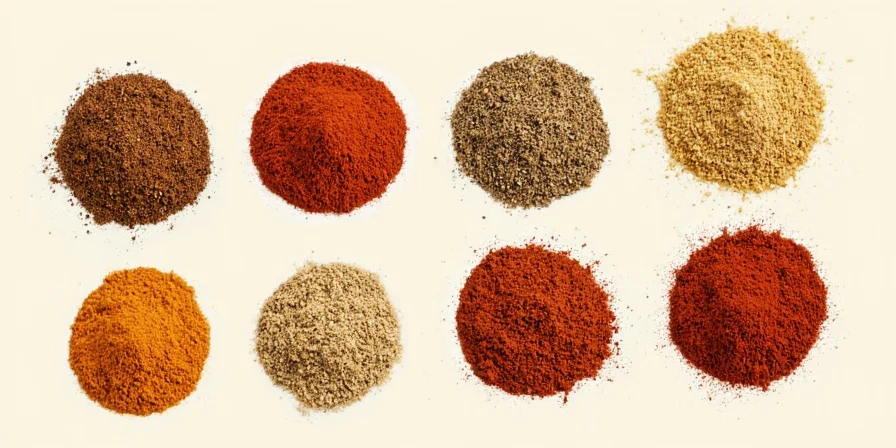









 浙公网安备
33010002000092号
浙公网安备
33010002000092号 浙B2-20120091-4
浙B2-20120091-4